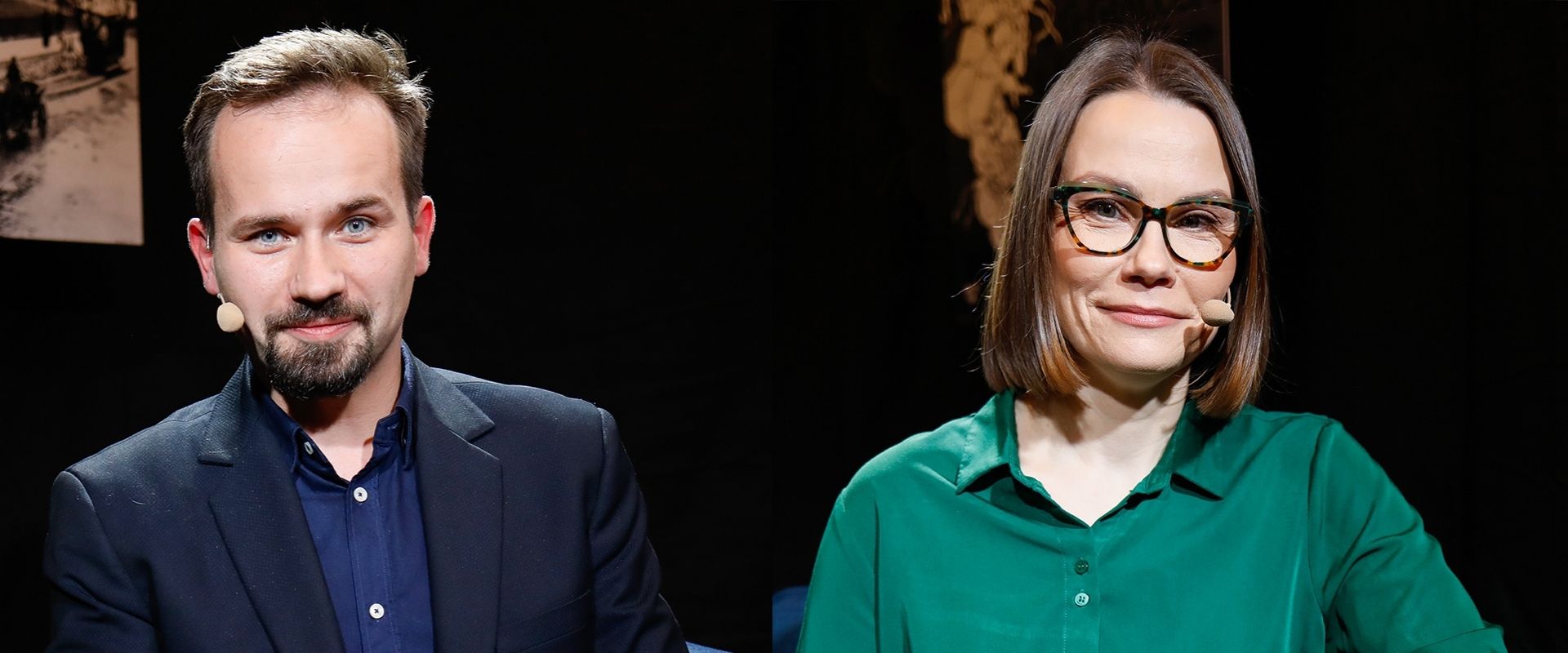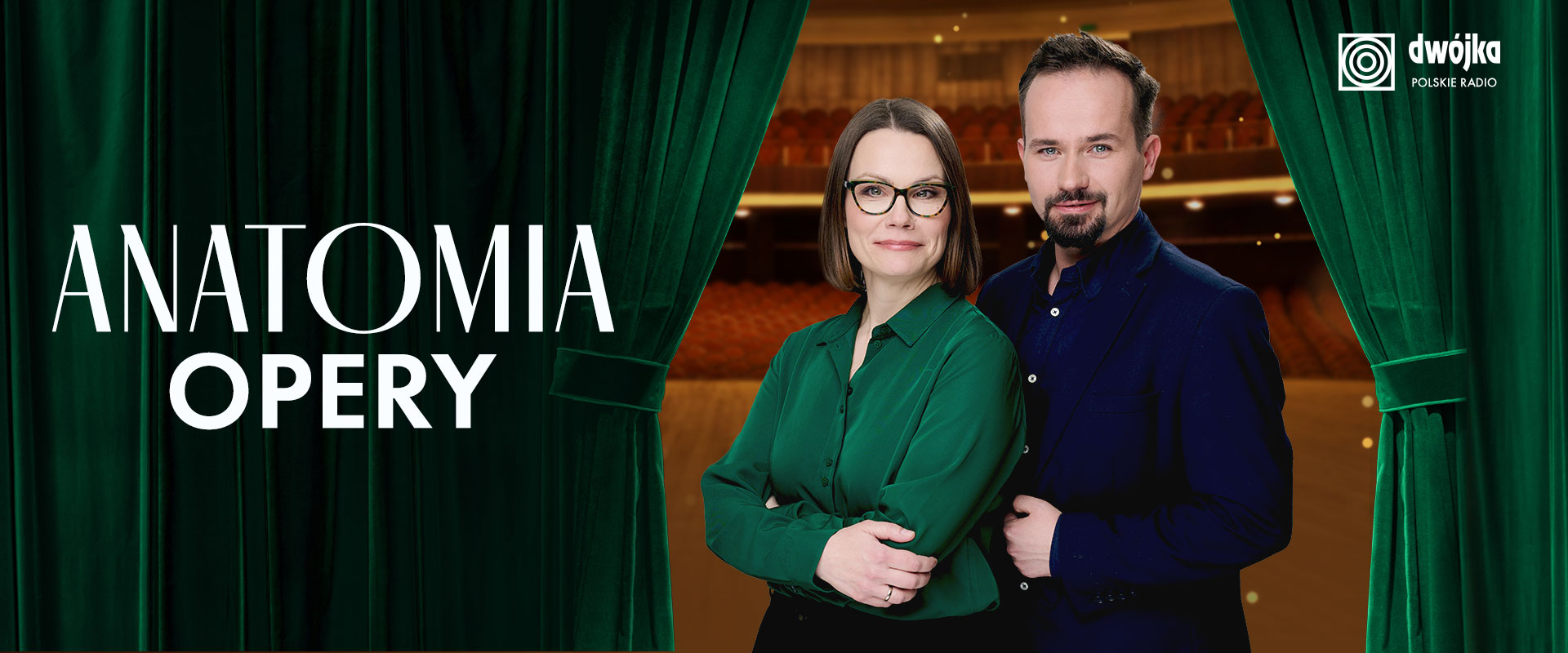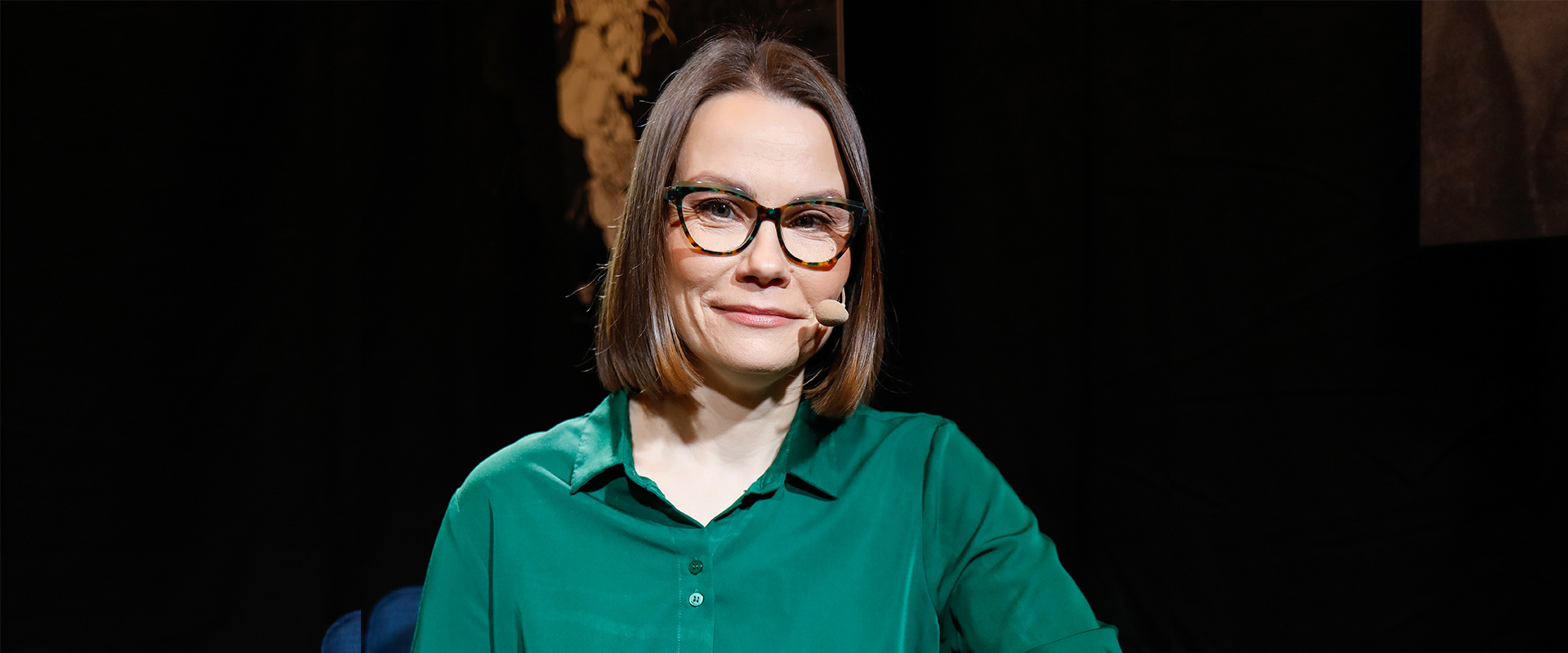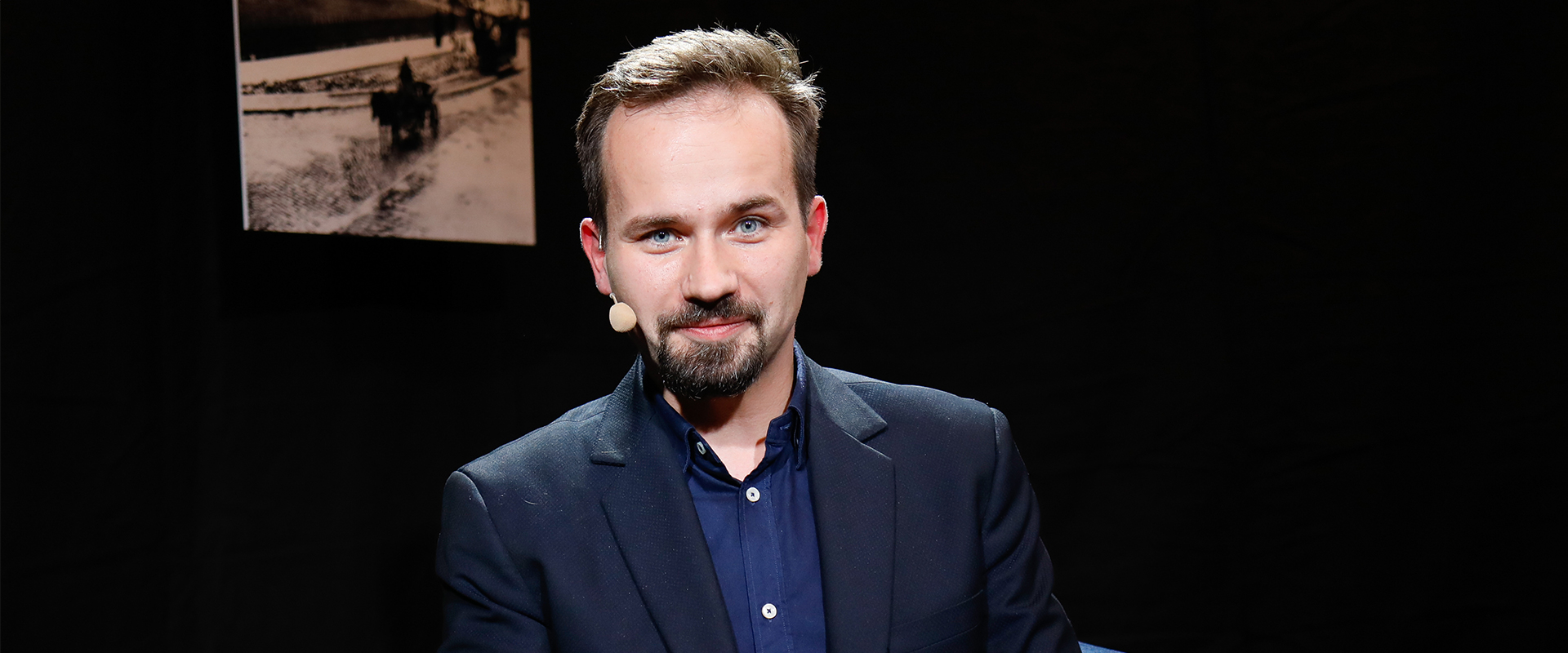 Inside “Anatomy of Opera” with Agata Kwiecińska and Adam Banaszak
Inside “Anatomy of Opera” with Agata Kwiecińska and Adam Banaszak
Why has opera fascinated and moved audiences for centuries? Why do some arias send shivers down our spines, while others move us to tears? What dramas, love stories, and intrigues lie behind the creation of the greatest operatic masterpieces? These are the questions explored in “Anatomy of Opera” – a podcast in which Agata Kwiecińska, Head of the Music Editorial Department at Polish Radio 2, and conductor Adam Banaszak jointly uncover the world of opera in all its intensity. In each episode, they analyze one of the great operatic works and discuss its creators, characters, and hidden meanings. Ewa Rogucka talks to the hosts of the podcast, Agata Kwiecińska and Adam Banaszak.
Who is “Anatomy of Opera” for? Seasoned opera-goers or those just discovering their first operatic fascination?
Adam Banaszak: Opera is a fundamental part of our culture. I believe it deserves to be talked about, discussed, and debated – just as we do with literature, film, painting or drama.
Agata Kwiecińska: We don’t divide our audience into groups. We hope – and try – to speak about opera in a way that both music lovers and those who have never been to the opera can find something intriguing.
What was the biggest challenge during the first season?
Agata Kwiecińska: The key was finding the right format. The podcast exists in several versions – video, audio, and an extended audio version that includes musical excerpts from the opera we’re discussing. Each episode is recorded face to face, without a detailed script or specific musical cues prepared in advance. That’s why post-production takes a lot of time. “Anatomy of Opera” is not a typical podcast that’s just a conversation. In its extended version, it’s closer to a classic radio program.
How do you choose which operas to feature? Is it based on popularity, historical significance or other criteria?
Adam Banaszak: Officially, we’re curating a sort of operatic season, balancing Italian, French, Polish music – works from different styles and eras. Unofficially, we choose pieces we’d personally love to see in the opera house soon. In most cases, they’re also operas I’ve conducted, which makes them especially close to my heart.
While working on an episode, have you ever come across something that truly surprised you about a particular opera?
Agata Kwiecińska: The episode about Moniuszko’s “Halka” was special. At the very start, Adam said it’s a piece that made many people never return to the opera. Why? Because they saw a bad school-trip performance without any preparation. And yet it’s a brilliant opera. So we asked ourselves – how do we reconcile that? How do we take Moniuszko and “Halka” off their pedestal, so we’re not just repeating “the best Polish opera, the national opera” over and over again? Of course, we sometimes fall into that circle of empty clichés, but we try hard not to.
Adam Banaszak: Since we talk live, the moments I find most interesting are when we surprise each other with different views or perspectives on the same subject. With “Salome,” for instance, our shared enthusiasm for the piece turned into a deeply emotional conversation about the meaning of opera itself. It led us to insights I could never have predicted.
Do you each have a “hidden gem” in the world of opera – a work unjustly forgotten?
Adam Banaszak: It’s hard to name just one. There are whole continents and archipelagos of such operas! But we decided that, in the first seasons of the podcast, we’ll focus primarily on the canon -the ABCs of the repertoire.
What helps you get into the right frame of mind before recording? Do you have any rituals or must-haves?
Adam Banaszak: I always try to bring a joke or anecdote so good that it makes Agata cry with laughter while she’s getting her make-up done.
Agata Kwiecińska: Unfortunately, that often works. But Adam isn’t always willing to repeat those anecdotes into the microphone. I hope I’ll persuade him to in future episodes.
If you were to name just one secret of opera – one reason it’s worth discovering – what would it be?
Adam Banaszak: I say this without irony: if beauty can change the world, it finds its fullest expression in the opera house. There we can experience purification, exaltation, transcendence – and release emotions no other art form can evoke. Opera can have genuine, immense power and influence on our lives. The opera stage is the crown of culture – that’s why it’s worth discussing its meanings, symbols, metaphors – the depth of its language.
Agata Kwiecińska: I’ll say something a bit more pragmatic. Sometimes it’s worth making the effort, struggling through something we don’t fully understand. We live in a world of simplified messages, consuming only what’s convenient and easy to digest. Opera certainly doesn’t belong to that category – but sometimes it rewards the effort with something we couldn’t even imagine. And that’s where Adam and I meet – in our shared conviction that it’s worth it, even if we justify it differently.
Who? What? Where? When?
“Anatomy of Opera”, podcast
Authors: Agata Kwiecińska, Adam Banaszak
Available on: Polish Radio website, YouTube and Spotify





